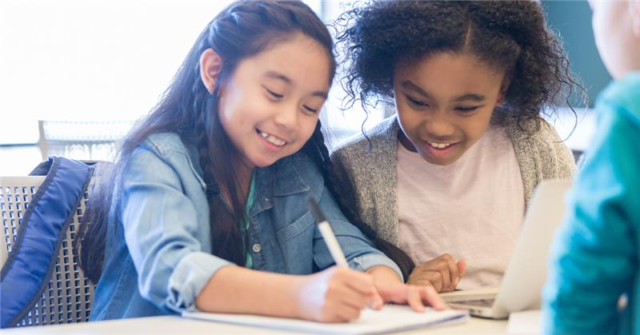
Irene Fountas and Gay Su Pinnell are literacy leaders who have made it their lives’ work to teach children to read and there is a volume of research that proves the efficacy and value of that work. Today, Fountas & Pinnell Literacy™ (FPL) is an interconnected set of literacy resources comprised of engaging, explicit, and systematic lessons in phonics and word analysis, reading, and writing. FPL includes high-quality texts, assessment, and intervention systems, and professional learning that enables teachers to personalize reading instruction to meet the needs of individual students.
Recently, misinformation has been shared about Fountas & Pinnell resources which grossly misrepresents our solutions and radically oversimplifies complex literacy issues to the detriment of teachers and students. The below information provides clarity and corrects the most egregious inaccuracies.
Misinformation
Fountas & Pinnell Literacy teaches kids to “guess” at words, not decode.
Fact
Fountas & Pinnell Literacy™ resources teach children to decode, using letters and sounds to read words.
Fountas & Pinnell’s approach to foundational literacy includes explicit and systematic phonics, alongside a strong focus on comprehension, vocabulary, language skills, and fluency.
Leveled Literacy Intervention (LLI) has demonstrated statistically significant positive effects on students’ general reading achievement and fluency, as well as decoding skills, as measured by the DIBELS nonsense word fluency subtest.
***
Misinformation
Fountas & Pinnell Literacy™ teaches phonics only in an incidental way.
Fact
Fountas & Pinnell Literacy™ teaches phonics through a series of systematic lessons that address critical areas of learning, including phonemic awareness, letter knowledge, letter-sound relationships, and spelling patterns.
Daily lessons support children in applying their knowledge of phonics to support accurate reading in relation to specific texts. In fact, the first curriculum resource Fountas and Pinnell published was explicitly focused on phonics.
***
Misinformation
Fountas & Pinnell Literacy resources are not effective
Fact
Fountas & Pinnell Literacy™ resources have been proven effective through independent studies, including a gold standard study endorsed by the U.S. Department of Education’s What Works Clearinghouse. Learn more here: https://downloads.heinemann.com/fp-lli
Leveled Literacy Intervention (LLI) has demonstrated statistically significant positive effects on students’ general reading achievement and fluency, as well as decoding skills, as measured by the Dynamic Indicators of Basic Early Literacy Skill (DIBELS) nonsense word fluency subtest. This was shown through a “proven effective” rating based on ESSA (Every Student Succeeds Act) standards through rigorous randomized controlled trial studies. Learn more here: https://www.fountasandpinnell.com/research/fpc/
An analysis of the National Assessment of Educational Progress (NAEP) report card released in October 2022 showed that many of the top-performing districts used Fountas & Pinnell Literacy™ resources. For example, in South Carolina, a state without any declines in NAEP performance, 68% of their top-performing districts utilize a Fountas & Pinnell Literacy™ resource.
***
Misinformation
Fountas & Pinnell Literacy™ is based on the Whole Language theory of how kids learn to read.
Fact
Fountas & Pinnell’s approach is not Whole Language and is not based on Whole Language. Fountas and Pinnell believe that all children need explicit instruction in phonics, reading, and writing. F&P resources support children’s attention to every letter, sound, and word in order to read and write with accuracy, fluency, and understanding. F&P resources are based on a broad body of research developed and informed by many educational researchers.
***
Misinformation
Fountas & Pinnell Literacy™ does not support students in need of reading intervention.
Fact
Leveled Literacy Intervention (LLI) has demonstrated statistically significant positive effects on students’ general reading achievement and fluency, as well as decoding skills, as measured by the Dynamic Indicators of Basic Early Literacy Skill (DIBELS) nonsense word fluency subtest. This was shown through a “proven effective” rating based on ESSA (Every Student Succeeds Act) standards through rigorous randomized controlled trial studies. Learn more here: https://www.fountasandpinnell.com/research/fpc/
Further, LLI has been proven effective with students with various needs, including those with Individualized Education Plans (IEP). In a 2009-10 study of the progress of students using an LLI curriculum, which included kindergarten through fifth-grade students with an IEP for Reading or other categories (SPED), students made an average of 7.5 months of progress in a little more than 4.5 months.
Learn more here: Fountas & Pinnell LLI


